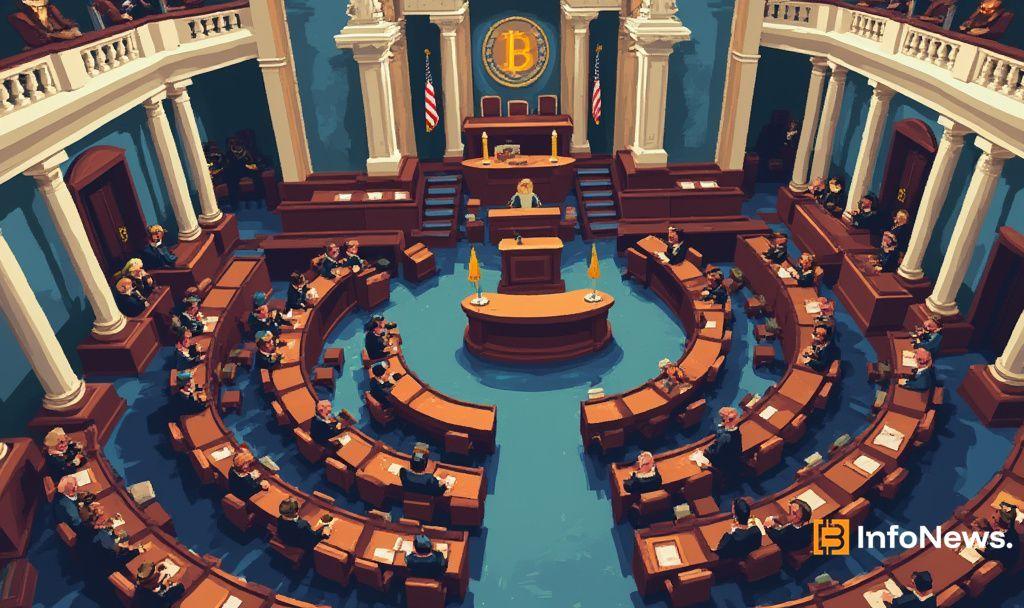U.S. Senate Blocks Stablecoin Regulation Bill in Close Vote
- Stablecoin regulation blocked in U.S. Senate with a 48-49 vote.
- Political opposition over tech companies and Trump-related provisions.
- No immediate institutional funding shifts observed post-vote.

Summarizing the event, the U.S. Senate voted 48-49 against a proposal on May 8, 2025, that aimed to regulate stablecoins.
The rejection of the bill preserves market ambiguity, impacting the status of stablecoin issuers while highlighting ongoing political divisions.
Senate Opposes Stablecoin Bill by Narrow Margin
The blocked legislation, requiring 60 votes to proceed, faced opposition led by Sen. Elizabeth Warren (D-Mass.), who cited concerns over Trump-related provisions. Republican Senators Rand Paul and Josh Hawley also opposed it. Senate Majority Leader John Thune switched his vote to “no,” enabling future reintroduction of the bill.
Key involvement included restrictive proposals against major tech companies from entering stablecoin markets as advocated by Hawley. Thune emphasized an “open process” for future discussions, while Warren labeled certain incentives as “blatantly corrupt.”
“Once we’re on the bill, we can discuss changes here on the floor. We’ve had an open process here on this bill so far, so why stop now. … I don’t know what Democrats would change about the process this bill has gone through. Democrats have been accommodated every step of the way, frankly, I just don’t get it.” — John Thune, Senate Majority Leader
Regulatory Ambiguity Continues for Stablecoins
The vote sustains regulatory uncertainty for U.S.-based stablecoin issuers, affecting projects like USDC and USDT. This indecision might slow institutional inflows due to ambiguous policies. However, no major on-chain data or liquidity shifts have been reported as a direct outcome.
Political tension persists with disagreements over tech industry involvement and cryptocurrency regulation, stalling clarity essential for investor confidence. The absence of immediate market disruption aligns with past stablecoin legislative failures, historically marked by uncertainty rather than economic turmoil.
U.S. Faces Ongoing Digital Asset Regulatory Challenges
The U.S. has experienced multiple legislative setbacks in regulating digital assets, mirroring this outcome. Previous delays highlighted regulatory challenges, contributing to slowed institutional advancement. Present stances suggest continued legislative negotiations aiming for a balanced regulatory landscape.
Pending regulatory clarity, industry stakeholders speculate potential outcomes informed by data and historical trends to navigate ongoing uncertainties, reflecting common challenges confronting digital and financial markets.
| Disclaimer: The information on this website is for informational purposes only and does not constitute financial or investment advice. Cryptocurrency markets are volatile, and investing involves risk. Always do your own research and consult a financial advisor. |



